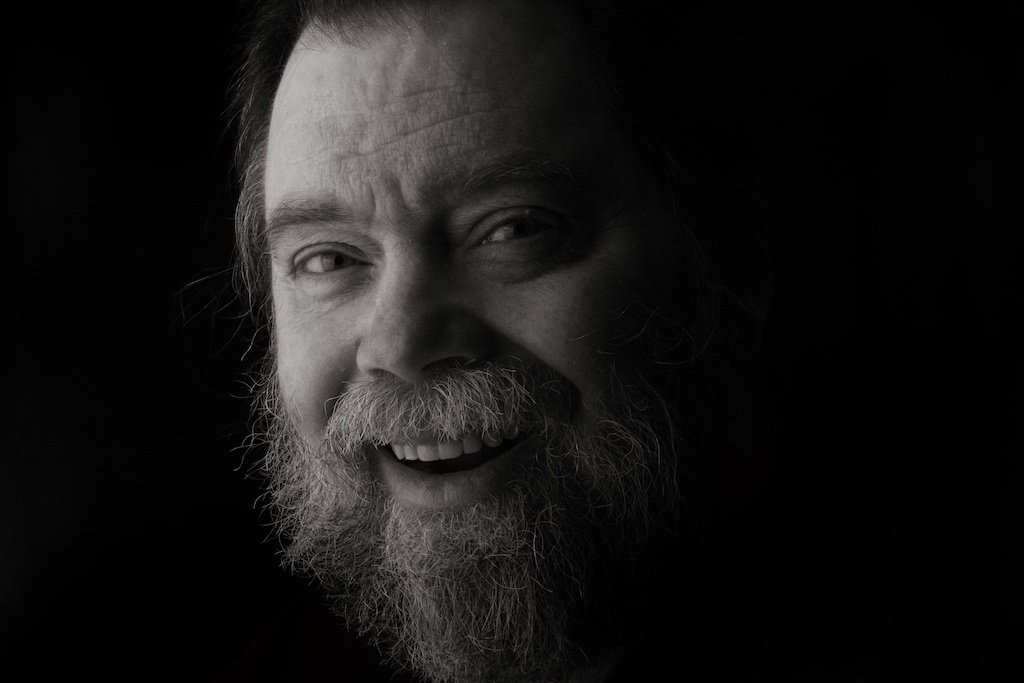Remembering the Roky Erickson who fronted the 13th Floor Elevators as a teenager in the mid ’60s, poster artist Jim Franklin once said, “Anyone who tried to have a conversation with him understood that he was not of this world.” The Roky Erickson who speaks with the Georgia Straight from his home in Austin, Texas, is hale, boisterous, happy to be on the phone—at one point he cuts short one of his own winding answers to brightly inquire, “How you been doin’?”—and he is still not completely of this world.
Does he find it hard, for instance, to get on stage at the tender age of 66?
“The thing that I mind is doing it when, say, I’m not rested up or something like that,” Erickson replies, and then, within seconds, and I’m not entirely sure how we get there, he’s on a tangent about mail-order college courses. He follows his own script in this way for the next 25 minutes, both of us chuckling at his observations. It doesn’t really matter, since Roky Erickson is also healthier and happier in 2013 than anyone could have reasonably expected.
Conveniently if insensitively considered one of the great drug casualties of the ’60s, the legendary musician and his recovery were captured in the excellent 2005 doc, You’re Gonna Miss Me—a film named after the incendiary hit the Elevators scored in ’66. His 2010 album True Love Cast Out All Evil was another unlikely development: an ambitious autobiographical narrative told in bold emotional strokes. In his outstanding liner notes, Erickson’s collaborator, Okkervil River’s Will Sheff, called him “both the most cursed and the most blessed person I’ve ever met”.
“Huh,” muses Erickson. “Now that was a really good thing to say, wasn’t it?”
He’s warm and humorous, even when he talks about being incarcerated in the early ’70s at Rusk Maximum Security Prison for the Criminally Insane; a place where his schizophrenia was “treated” with shock therapy and Thorazine. “It was a time when they would let me sit back in my quarters and just write what I wanted and everything,” he recalls. “And then once in a while they’d come out and say, ‘Oh, I see you’re still doing that, excuse me, I didn’t mean to bother you.’” Asked about the late Doug Sahm, who got Erickson back into the studio after his release, he quips, “I did like Doug… But I never did understand what [Sahm’s 1965 hit] ‘She’s About a Mover’ was about.”
These days, he says, “I been just taking it easy. I enjoy painting things, you know. We shop at a place called St. Vincent de Paul [Thrift Store]… we shop there a lot and we buy a lot of books there and everything.” Now reunited with his wife, Dana, and having gotten to know his son Jegar—who also leads dad’s touring band, the Hounds of Baskerville—Erickson received yet another boost this year.
“This Light in the Attic,” he says, referring to the label that recently reissued Erickson’s vital solo work from the ’70s and ’80s. “They seemed to take some kind of an interest in trying to collect all my stuff and make sure it’s gonna be all right, you know; it’ll always be accessible.” He ponders whether he should write them a thank-you letter, before wrapping up our conversation and wishing me well. “Okay. Be sure to return a call if you want to,” he says, cheerfully, “and I’ll think more about Light in the Attic. Good to talk to you. Good to talk to you.”
Georgia Straight, November 2013
